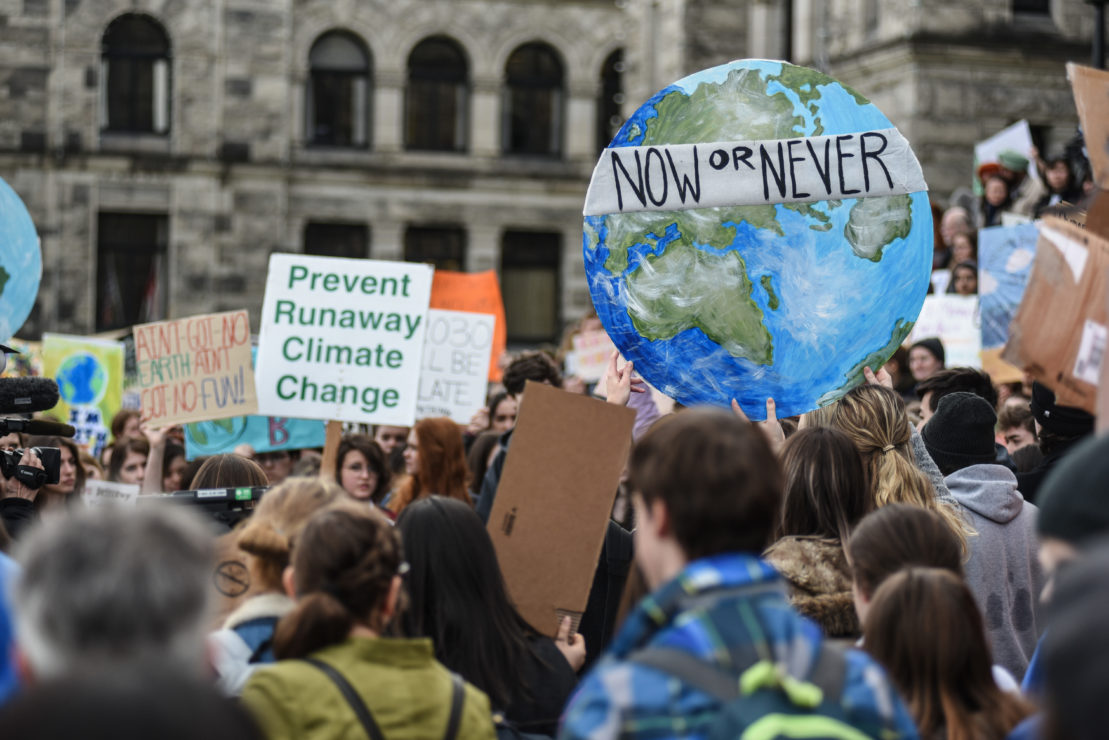COVID-19 has demonstrated our ability to react decisively to a threat — climate change deserves the same response

COVID-19 is indisputably a global crisis that demands an immediate, effective, and informed response. It deserves the effort, money, and attention being devoted to it. However, the coronavirus is one of many serious problems facing the world, and the global response to the outbreak has raised some questions — specifically, why haven’t we responded to climate change with a similar level of concern and action?
Earlier this month, the United Nations provided $15 million to help countries grapple with the ongoing global pandemic. U.S. President Trump declared a national emergency and made $50 billion available to combat the spread of the virus, and here in Canada the government has spent over a billion dollars on coronavirus action.
If you’ve skimmed news coverage, visited a grocery store, or just talked to anyone in the last week, you’ll have noticed that it isn’t only governments, companies, and airlines that have been focused on responding to the coronavirus. On the everyday level, we’re terrified of this invisible threat. Even though the virus has yet to devastate our city, we’ve watched the hardships in Wuhan and Milan.
The coronavirus is impossible to ignore.
But another impending danger to the global economy and human society — climate change — has been in the public consciousness for decades, and we have yet to see any global measures by governments and companies to rival the coronavirus response of the last few weeks. Yes, it’s a very different situation than a pandemic, but inaction will likely have equally extreme consequences.
In 2018, the Intergovernmental Panel on Climate Change released a report stating that extensive action must be taken by 2030 to lessen the effects of the climate crisis. Without this, global warming will exceed 1.5°C and the world will be faced with extreme temperatures, storms, droughts, fires, and flooding.
And sure, efforts have been made, but they have been largely tokenistic and mostly on paper. Climate treaties are great, but signatures alone don’t cut carbon emissions.
Of the signatories to the Paris Agreement, only Gambia, India, and Morocco are on track to limit warming to 1.5°C. To add insult to injury, the International Monetary Fund estimated that worldwide subsidies to the fossil fuel industry totaled some $5.2 billion in 2017.
Here in Canada, one of the key debates leading up to the 2019 federal election surrounded the federal carbon tax which Alberta, Saskatchewan, Manitoba, and Ontario have challenged as unconstitutional. Recent data also show that Canada has some of the highest emissions per capita on the planet and is set to miss its 2030 targets by 15 per cent.
“We’ve burned more fossil fuels on this planet since 1992 — when we pledged to cut down to now — than we did from the beginning of the industrial revolution till 1992,” Elizabeth May, former Green Party leader and Member of Parliament for Saanich and the Gulf Islands, said at a International Women’s Day event in Victoria last week.
We understand the costs of climate change, so why have we not responded with a comparable level of effort to how we have addressed the coronavirus? For example, take our university, an institution with both the money and prestige to do great good or harm in the areas of climate change and public health. UVic’s response to the emerging health crisis has been far more pronounced than its paltry efforts to combat climate change at an institutional level. If climate change is truly the crisis of our generations, then why have the actions of UVic — and the world — been so insufficient?
It’s simple — immediacy.
The effects of COVID-19 are clearly happening now. Every day, citizens and policymakers see the case numbers and death toll growing, and read headlines and social media commentary filled with alarm. It’s easier to dismiss the effects of climate change, which, though they are certainly already taking place, are gradual. However, it is critical that we remember the climate crisis is a crisis. It is happening now. It will continue to happen unless we make significant changes.
Compared to the coronavirus, climate change seems like something far away, or something so insurmountable that we have no hope of responding at all — so why even try? However, the sweeping response to COVID-19 demonstrates that we are in fact capable of responding to a crisis.
With sustained political will, we are clearly capable of directing immense attention, resources, and effort to a crisis. The climate crisis should be no exception.







